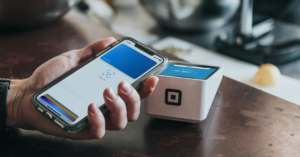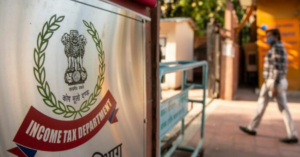Accidents happen unexpectedly and unintentionally, typically resulting in damage or injury—especially so for accidents involving motor vehicles. Auto accidents, also called a motor vehicle collision, car accident or car crash, occurs when a vehicle collides with another vehicle, pedestrian, animal, road debris, or other stationary obstruction, such as a tree, pole or building. The damages and injuries often resulting from these types of accidents can range from mild to severe—both physically and emotionally, as well as financially.
As sudden as an auto accident occurs, and without prior experience to one, you—as the driver—wouldn’t immediately be able to make conscious decisions. When you’re in an auto accident, your body tries to protect you from the trauma by releasing a sudden surge of adrenaline, also leaving you in a state of confusion: What just happened? What should I do? How am I going to be able to pay for this? Whose fault was the accident?
The whole experience could be quite overwhelming. If you have no clue as to how to proceed, you can request assistance from professionals versed in auto accidents here: https://injuredhelpnow.com/auto-accidents/
If you continue to read through the article, you will be provided with the basic necessary knowledge to cope with an auto accident eventuality.
Minor Auto Accidents
Minor auto accidents generally include small vehicle damage that does not impair the vehicle’s ability to function or cause serious injuries. For example, someone may rear-end your car, causing a few dents or scrapes to the bumper.
What to do in case of Minor Auto Accidents
- Safety Assessment and Documentation
The principal concern during a car accident is the safety of yourself and well-being of everyone involved. Leave your vehicle and document the situation with photos or a video.
- Avoid causing a traffic disturbance
After that, the driver must leave the road immediately to avoid hitting an oncoming vehicle. Use flares or cones (if available) to warn different drivers and turn on hazard lights for better visibility. If someone is injured, please identify the nearest hospital. Don’t leave the scene of the accident, even a little bit, until everything is resolved to everyone’s satisfaction.
- Communicate with the Other Driver
Once the initial shock wears off and it’s apparent that no one’s been seriously hurt, tempers may flare. It is best to stay calm. Get the other driver’s name, address, contact information and insurance details, and provide the same for him. See if an amicable settlement can be made. If not, ask for traffic enforcers/investigators to be present on the scene immediately. Remain at the scene until the investigators arrive and tell you that you can go.
- Insurance and Repairs
Now that the basics have been figured out, it is time to look at the damage to your car and how to repair it. If possible, please call your insurance agent on site and request repairs. Keep in touch with the traffic inspector and prepare an accident report when prompted.
Major Auto Accidents
Major auto accidents include anything from disabling damage to your vehicle to serious personal injuries.
What to do in case of Major Auto Accidents
- Safety Assessment and Documentation
- Move a distance away from the scene of the incident if possible
Traffic jams are unsafe, and a two-vehicle accident may soon become a multi-vehicle accident. If you cannot move the vehicle, please stay nearby until an inspector arrives.
- Let the inspector take command of the situation, and institute measures to prevent the accident from getting worse.
When the police arrive, you will want to get their names so that you can refer back to them later when reviewing the accident details. Additionally, you shouldn’t rely solely on the police report to tell your side of the story.
- Communicate with the Other Driver
- Contact your insurance company and know what your policy covers.
After exchanging information with the other driver, your next move should be to contact your insurance company to let them know that you’ve been in an accident and to give them your version of the events. Additionally, you should be aware of what exactly your policy covers.
- File an accident report with the police department.
Having a police report on hand can assist in speeding up the insurance claims process. You can file a report at your local police station.
If claims have difficulty in processing(negotiation with insurance companies), or if the progression of the auto accident ends with you wondering if you have a possible case, it is always best to consult with an attorney. Initial consultation is always free, and they are more than willing to answer your call.









